Today we continue by train on the picturesque route from Kagoshima through the Kirishima Mountains to Miyazaki. There we will take a trip back in time and take a look at Kamairicha manufacturing as it was 100 years ago.
Yusuke Kadota picks us up at the station. On the way, he tells us that they have a lot of visitors this year. During Golden Week, some tea shop owners have come to the tea garden with their staff to help out a bit, in addition to seeing the traditional tea production. Yusuke is happy about the great interest in their work, even though looking after the visitors also adds to their actual work.
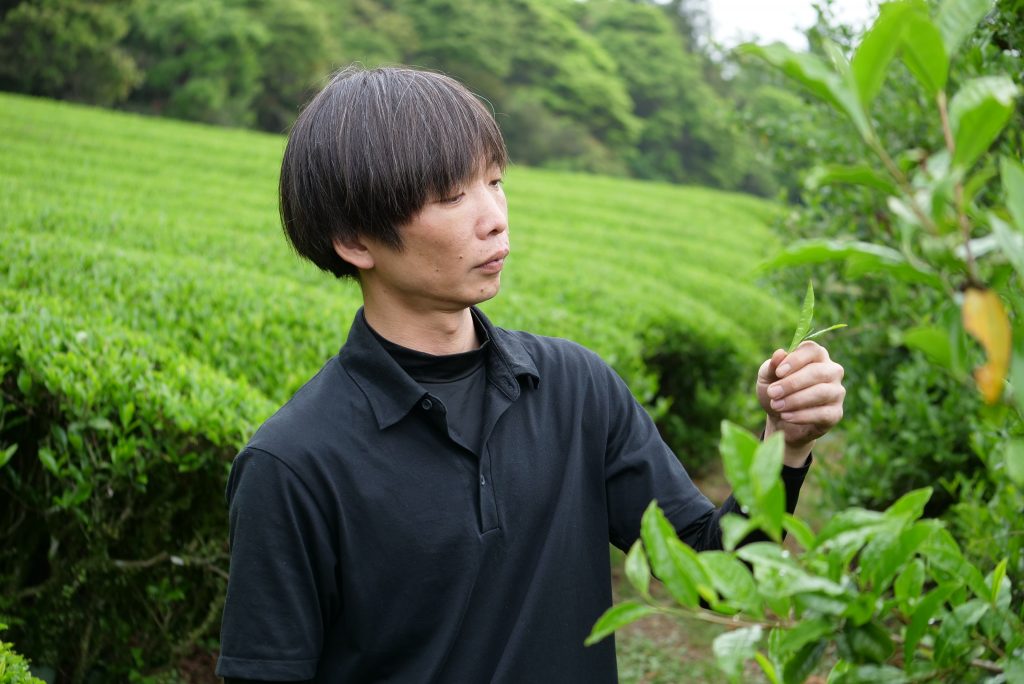
We ask about frost damage in the tea garden because this was a big problem at Shutaro a little further south this year – especially in the fields that had no fans. At the Kadotas there are no fans either, but for different reasons. Yusuke describes that for him it is an ideal to interfere with nature as little as possible. This is also the motivation for the Kadota family to produce organic tea – as naturally as possible and without too much human intervention. He describes it so beautifully how it is not good if everything is influenced only for the benefit of the people. But since crop failures are also a big risk for them, he has found other ways. They have observed that these frosts are related to the moon and so they plan ahead using the lunar calendar. They have observed that there are often frost nights in the week after the full moon. Depending on when you apply the topiary, you can influence the sprouting and growth of the plants a little, so that the plants have not yet sprouted too much at this time. In most gardens, topiary is done before the first buds appear. Doing this topiary later, when the first buds may already be there, is rather inconvenient for most tea gardens. When selling on the tea exchange, timing also determines the price. The early teas are traded at a higher price, even if later batches may be of better quality. Delaying the harvest makes no sense for most gardens. Kadotas tend to have late varieties in their tea gardens anyway and do not deliver to the tea exchange. Since the batches are always very small, this would not suit the business at all.
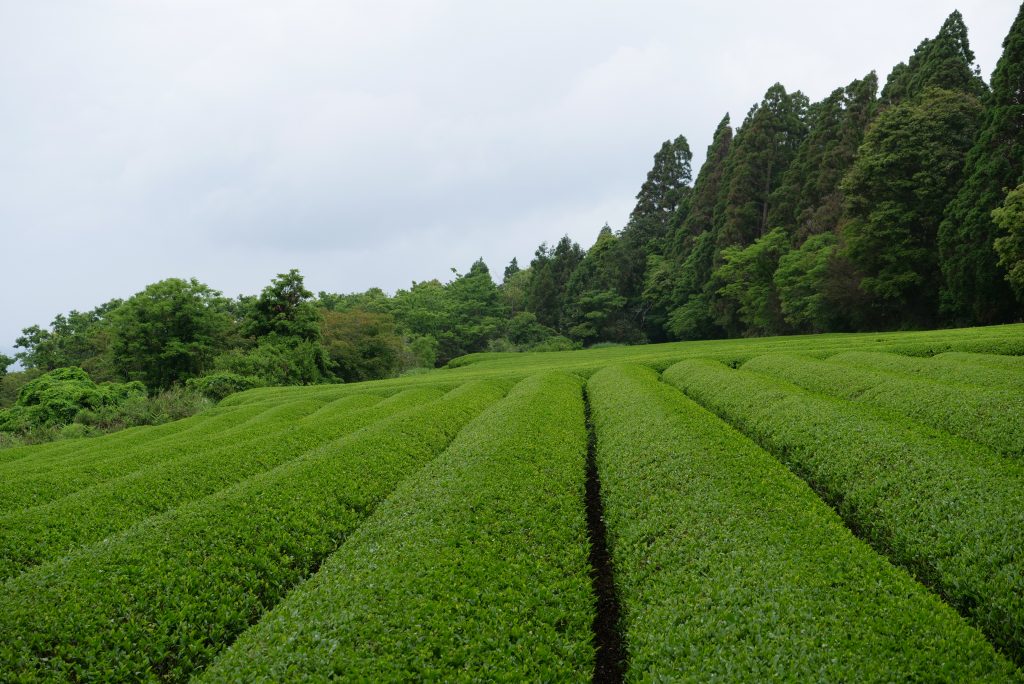
Of course, despite planning, frost damage can occur. The Kadotas are willing to experiment. Two years ago, they harvested the still fresh shoots that got frost directly after the night of frost. The shoots would not have grown any further, but would have withered and fallen off in the next few days. They are not suitable for green tea production, but they have made black tea from them – an unbelievably sweet, fruity black tea was produced that almost reminds one of Japanese plums in its smell.
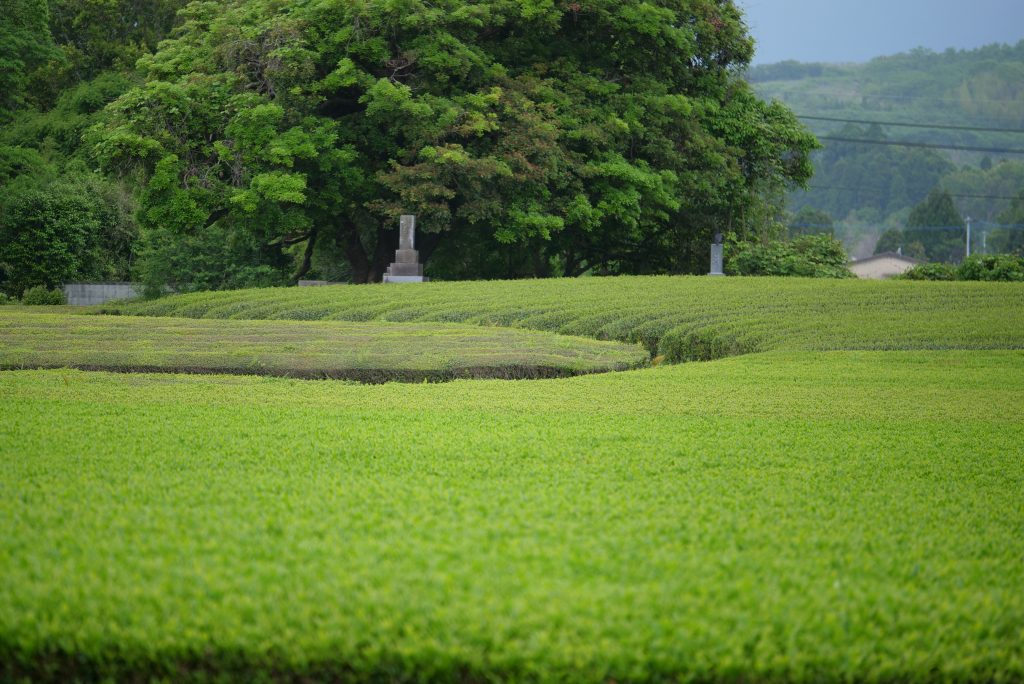
Fortunately, there was not so much damage from frost this year. In the Zairai field, not far from the tea factory, there are a few spots, but overall it is probably not that dramatic. We remember the harvest two years ago, when practically the entire first harvest, with the exception of the Arasaki plot, was destroyed by frost.
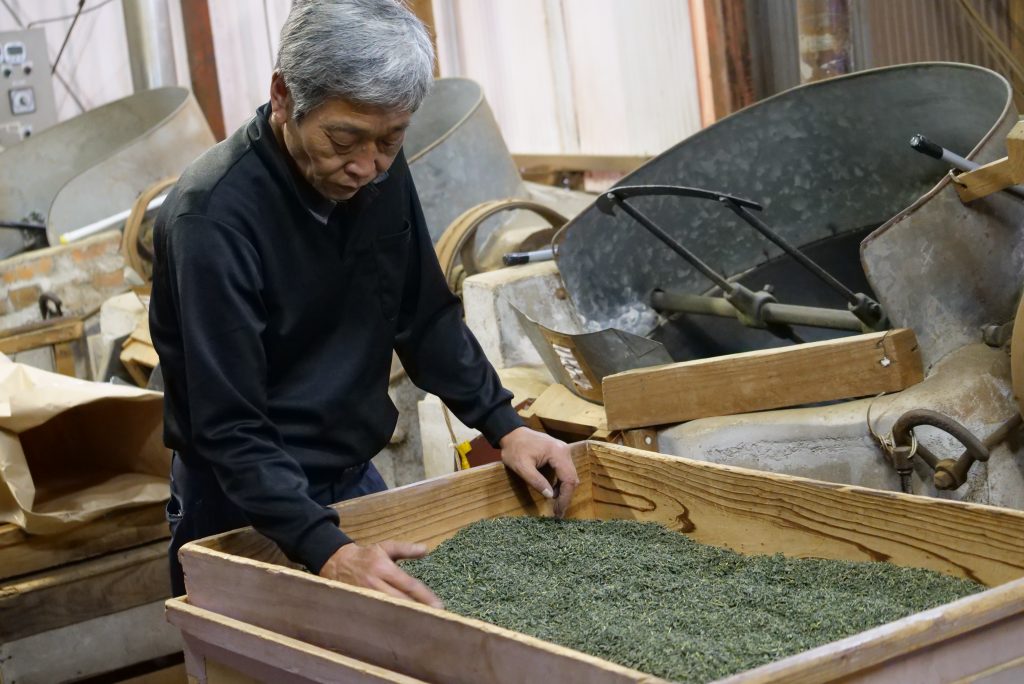
As we enter the tea factory, we are greeted by a pleasant sweet smell. The first production steps of heating and rolling have already been completed for today, but the kamas are all still filled with tea. Here you can experience the change in smell quite wonderfully. When the tea leaves first come into the kama, they still smell rather flowery and grassy – once this production step is completed, a sweet smell spreads throughout the whole tea factory. We don’t want to leave – it smells so good.
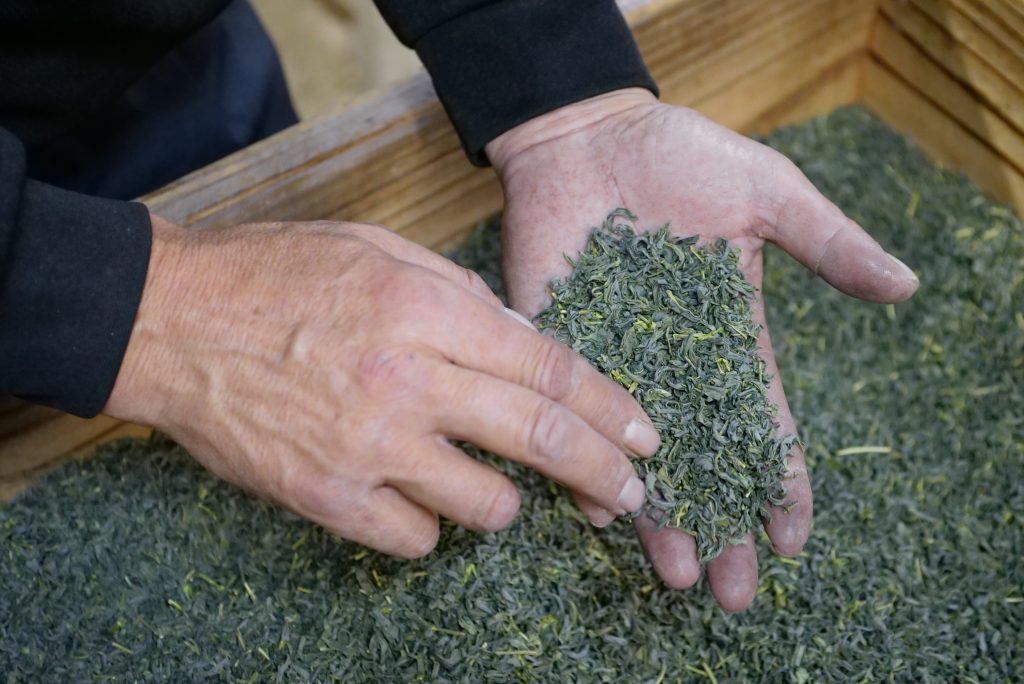
A few days ago, Kadotas also finished making our Kadota Aracha Shincha. We first tried it as mizudashi, i.e. infused with cold water, and were already very enthusiastic. A pleasant, flowery scent spreads through the mouth and throat, coupled with a very slight astringency, but without occupying the mouth too much. Otherwise, the Aracha Shincha is mild, pleasantly sweet and very balanced, even when infused with hot water. The infusion colour is also beautifully clear and green. When we ask if there is a possibility of getting a little more of the tea than we ordered in advance, Yusuke Kadota apologises that he unfortunately only reserved this quantity for us. They have so many reservations now that it is sometimes difficult to keep them all. At least we are happy to get our pre-order and to share this unique treasure with the tea enthusiasts in Europe.